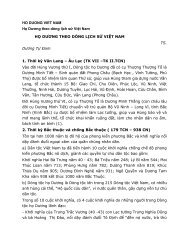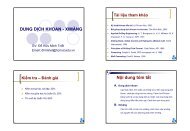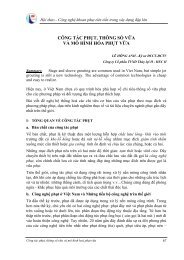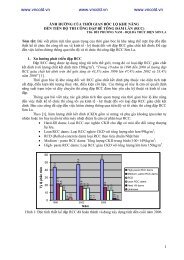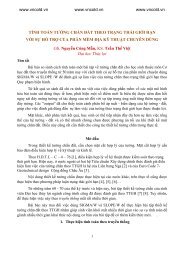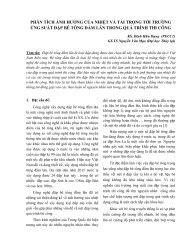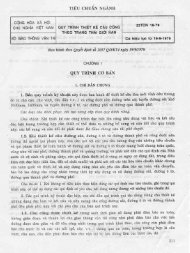Civil Engineering Project Management (4th Edition)
You also want an ePaper? Increase the reach of your titles
YUMPU automatically turns print PDFs into web optimized ePapers that Google loves.
The resident engineer’s duties 99<br />
undertaking hand augering of the foundation site or, if necessary, using the<br />
contingency money under the contract to instruct the contractor to excavate<br />
a trial hole paid under dayworks (see Sections 13.8 and 16.3).<br />
9.5 Some important points the resident engineer<br />
should watch<br />
Some important provisions of the ICE conditions of contract that need to be<br />
borne in mind by the RE are as follows:<br />
1. All instructions to the contractor have to be given in writing or, if given<br />
orally, have to be confirmed in writing ‘as soon as is possible under the<br />
circumstances’ (Clause 2(6)(b)).<br />
2. If the contractor receives an oral instruction and confirms it in writing, and<br />
the engineer does not contradict such confirmation ‘forthwith’, then the<br />
confirmation is ‘deemed an instruction in writing by the engineer’ (Clause<br />
2(6)(b)). These confirmations of verbal instructions – or ‘CVIs’ as they are<br />
called – can raise special difficulties for the RE and the problems of handling<br />
them are dealt with in detail in Sections 13.3 and 17.6.<br />
3. Although an RE may not have been delegated powers to decide how much<br />
should be paid (if anything) against a contractor’s claim for extra payment,<br />
he has powers to write to the contractor stating his views on the claim. It is<br />
imperative he should do so, in each case, so that the facts as he sees them<br />
are on record.<br />
4. There are numerous ‘time clauses’ in the conditions of contract, that is,<br />
clauses stipulating some time limit within which the engineer (and therefore<br />
probably the RE also) must take action. An important instance is the requirement<br />
that the engineer must comment on the contractor’s proposed programme<br />
within 21 days of its receipt, otherwise the engineer is deemed<br />
to have accepted it (Clause 14(2)). The same, in effect, applies to any partprogramme<br />
or revised programme the contractor supplies. Consequently if<br />
the engineer fails to comment within 21 days, the contractor’s programme is<br />
deemed approved and anomalies may be introduced if the programme does<br />
not reflect the specified timing.<br />
5. The RE has to ensure that the contractor receives all approvals, drawings,<br />
details and other information he needs to construct the works, in good<br />
time; otherwise the contractor may claim for delay (Clause 7(4)).<br />
6. The RE should not accept lower grade materials or workmanship than that<br />
specified, even if the contractor offers a lower rate of charge than the bill<br />
rate for the specified material, unless the engineer agrees to this. Such a<br />
change is a variation requiring issue of a VO.<br />
7. The RE must give immediate notice to the contractor when any defects in<br />
materials or workmanship are observed, because it may be very difficult to<br />
rectify a defective part of the work after it is completed. Hence inspections




